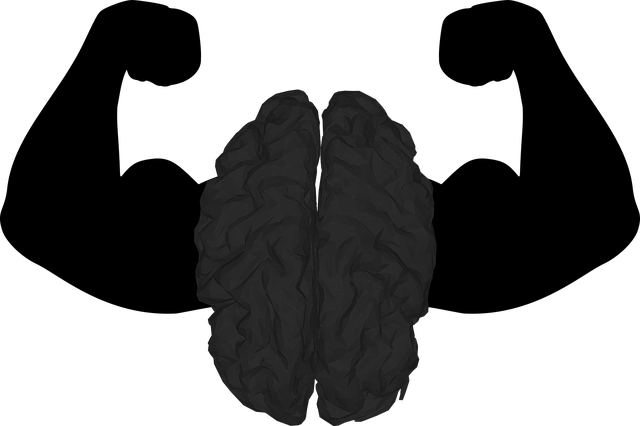Louisville Codependency Therapy offers a comprehensive approach to mental health through Recovery-Focused Methodology (RFM), focusing on self-discovery, coping strategies, and resilience. Combining stress reduction, social skills training, and emotional healing, this holistic method equips individuals with the tools to manage codependent patterns, build strong boundaries, and foster healthier relationships. By integrating RFM techniques like mindfulness and physical activity into daily routines, clients enhance their mental health resilience, achieve long-term goals, and experience transformative personal growth.
“Discover the power of resilience with an in-depth look at RFM (Recovery-Focused Methodology) and its transformative impact on mental health. This article explores how Louisville Codependency Therapy, a leading approach, enhances emotional well-being. We delve into practical exercises to build resilience at home, offering simple yet effective strategies for daily implementation. By integrating RFM into routines, individuals can foster long-term mental health and navigate life’s challenges with renewed strength.”
- Understanding RFM and Its Role in Resilience Building
- The Impact of Louisville Codependency Therapy on Emotional Well-being
- Practical Exercises for Strengthening Resilience at Home
- Integrating RFM into Daily Routines for Long-term Mental Health
Understanding RFM and Its Role in Resilience Building

Resilience is a vital component of overall mental health, enabling individuals to navigate life’s challenges with adaptability and bounce back from adversity. RFM, or Recovery-Focused Methodology, is an evidence-based approach designed to foster this resilience through a range of therapeutic interventions. This method is particularly relevant in addressing issues like codependency, as it promotes self-discovery, personal growth, and coping strategies that are essential for long-term well-being.
Implementing RFM in therapy sessions, such as those offered by Louisville Codependency Therapy, involves a multi-faceted approach. It includes teaching effective stress reduction methods and social skills training to enhance interpersonal relationships. By combining these techniques with emotional healing processes, individuals can develop the tools needed to confront and overcome codependent behaviors. This holistic strategy ensures that clients not only manage current challenges but also build enduring resilience for a more fulfilling life.
The Impact of Louisville Codependency Therapy on Emotional Well-being

Louisville Codependency Therapy offers a powerful tool for transforming lives and fostering emotional resilience. By addressing the deep-rooted patterns of codependency, individuals can break free from unhealthy relationships and develop a healthier sense of self-worth. This therapeutic approach focuses on identifying and challenging the beliefs and behaviors that contribute to feelings of inadequacy and dependency, enabling clients to build strong emotional boundaries.
Through various techniques, such as Crisis Intervention Guidance, Empathy Building Strategies, and Conflict Resolution Techniques, Louisville Codependency Therapy equips individuals with the skills to navigate relationships more effectively. By learning to set boundaries, assert their needs, and communicate openly, clients gain a profound sense of control over their emotional well-being. This, in turn, leads to improved mental health and a deeper understanding of oneself and others.
Practical Exercises for Strengthening Resilience at Home

Building resilience is an essential aspect of maintaining good mental health and well-being, especially during challenging times. For those seeking practical ways to strengthen their resilience at home, Louisville Codependency Therapy offers a range of exercises tailored to this need. Engaging in regular physical activity, such as walking, running, or yoga, can significantly reduce stress levels and improve overall mood by releasing endorphins, often referred to as ‘feel-good’ hormones.
Incorporating mindfulness practices into your daily routine is another powerful tool for stress reduction methods. Techniques like deep breathing exercises, meditation, or simply taking a few moments each day to appreciate the present moment can foster mental clarity and emotional stability. Additionally, Louisville Codependency Therapy recommends keeping a journal to track thoughts and emotions, which can help individuals become more aware of their feelings and identify patterns that may contribute to stress or anxiety. Engaging in these self-care practices consistently can significantly enhance one’s ability to cope with life’s challenges and promote mental health awareness.
Integrating RFM into Daily Routines for Long-term Mental Health

Integrating RFM (Reconnect, Focus, and Move) into daily routines can significantly contribute to long-term mental health goals, especially for those seeking Louisville codependency therapy. This approach is a practical way to enhance resilience and promote self-care. By dedicating time each day to these exercises, individuals can cultivate a sense of empowerment and independence. The Mental Wellness Journaling Exercise Guidance recommends setting aside 15-30 minutes daily for reflection and practice. During this time, one can engage in mindfulness activities like deep breathing or meditation to reconnect with their feelings, focusing on the present moment. This step is crucial for building mental fortitude as it helps individuals become more aware of their thoughts and emotions without judgment.
Furthermore, the move aspect encourages physical activity tailored to individual preferences. Whether it’s a walk in nature, a yoga session, or even a dance class, engaging in movement can be therapeutic and supportive. This component of RFM aligns with Mind Over Matter Principles, demonstrating that by taking control of our bodies and minds through consistent practice, we can improve self-esteem and overall mental wellness. Regularly incorporating these exercises into one’s routine fosters a sense of discipline and accomplishment, contributing to long-lasting positive changes in mental health.
Louisville Codependency Therapy has proven to be a powerful tool in enhancing emotional well-being. By integrating RFM (Resilience, Flexibility, and Mastery) exercises into daily routines, individuals can build mental resilience for the long term. Practical home practices, as discussed, offer accessible ways to strengthen resilience, complementing professional therapy. Embracing these strategies enables folks to navigate life’s challenges with greater ease and adaptability, fostering a symphony of emotional balance and growth.














